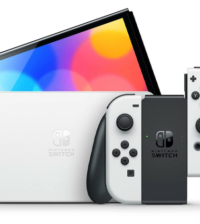Sony’s PS+ Titles for August Serve Up Plants, Zombies, Martial Arts
Ever since the shift to the PlayStation 5 – which remains a sour topic due to how difficult it is to get one – Sony has been keeping up the pressure with their PS+ titles. Every month since its release, they’ve included a new, usually exciting title for the next-gen iteration of their system, alongside a few other substantial games for the PS4 that have a good chance of satisfying its subscribers. August is a tricky month for the video game realm, dominated by the likes of EA’s annual football game and other fall distractions like going back to school and, uh, actual football, and the titles being offered this month suggest that Sony’s aware of this.
Instead of trying to make their presence known, the PS+ titles this month are a lower-key bunch that’s content with letting the bustle of August control things while they offer pick-up-and-play diversions with a family-friendly shooter, an arena fighter, and a tennis game. Let’s dive into the games, but before doing so, be sure to Grab a 1-Year PS+ Subscription Card from Amazon.

PS5
Hunter’s Arena: Legends
There’s an itch that hasn’t quite been scratched since BioWare released Jade Empire over a decade and a half ago, one for a dedicated martial-arts action game with open-world movement and freedom to fight in different ways. The Yakuza series gets in that spectrum with open Japanese districts and hand-to-hand fighting styles, but its modern-era setting and the environmental aspects that come along with that keep it from striking the same chord. Hunter’s Arena: Legends indirectly gets somewhat close to satisfying that urge, though not in terms of a focused story experience.
While there’s an open world exploration aspect and isolated, random battles to encounter, this game’s all about big arena-style combat pitting upwards of 30 “Hunter” challengers against each other. Characters both human and beastly – there’s a humanoid pig and panda! – square off either in a solo free-for-all battle to eliminate everything else or in 3-person squads, and each character has their own skill sets and/or weapons for variety, from melee and magic to ranged strategies. While there’s a narrative, hinged on demons unleashed on an ancient Asian realm and the Hunter responsible for doing it, it’s mostly there to keep the strategic arena combat glued together.

PS4
Plants vs. Zombies: Battle for Neighborville
PopCap Games are responsible for one of the more abrupt and surprising spinoffs in gaming history, turning the tower-defense mobile design of Plants vs. Zombies into a … family-friendly third-person shooter?! The pivot to Garden Warfare worked exceptionally well too, almost immediately gaining popularity with its humorous attitude, effective shooter strategies and multiplayer integration. Since, much like other modern warfare franchises (nudge, wink), it has enjoyed several sequels that modify the concept without straying from the core pillars that remain so effective.
The latest, Battle for Neighborville, struggles with the problem that many of these franchises end up facing after some time: how does it change and evolve without messing up the stuff that works? While this iteration adds a bunch of new classes and gameplay modes that certainly give it variety, some critics and players are frustrated by certain sacrifices made to get it to that point, notably in simplifying abilities and to some of the depth that likely held the attention of older audiences.
Tennis World Tour 2
The concept of hitting a digital “ball” back and forth is, of course, one of the oldest and most satisfying mechanics in the history of video games, but with time the simplicity of it has lost some of its luster. This has translated to a lack of recent enthusiasm even for tennis games, where the likes of Mario and Nintendo have had middling success in crafting successfully enduring titles with their Mario Tennis line, let alone those that aim for actual tennis simulation. The glory days of Top Spin and Virtua Tennis are long gone.
The first Tennis World Tour lobbed over a modern attempt at a core simulator that was met with firm criticism for its lack of precision and presentation, so there was little direction for the series to go but up with Tennis World Tour 2. Improvements were made to the tightness of gameplay, to the available roster and the visuals, and both critics and players seem at least marginally warmer to this entry. That said, the overwhelming impression is that Tennis World Tour still has a long way to go in most respects to be considered a successful tennis simulation.












